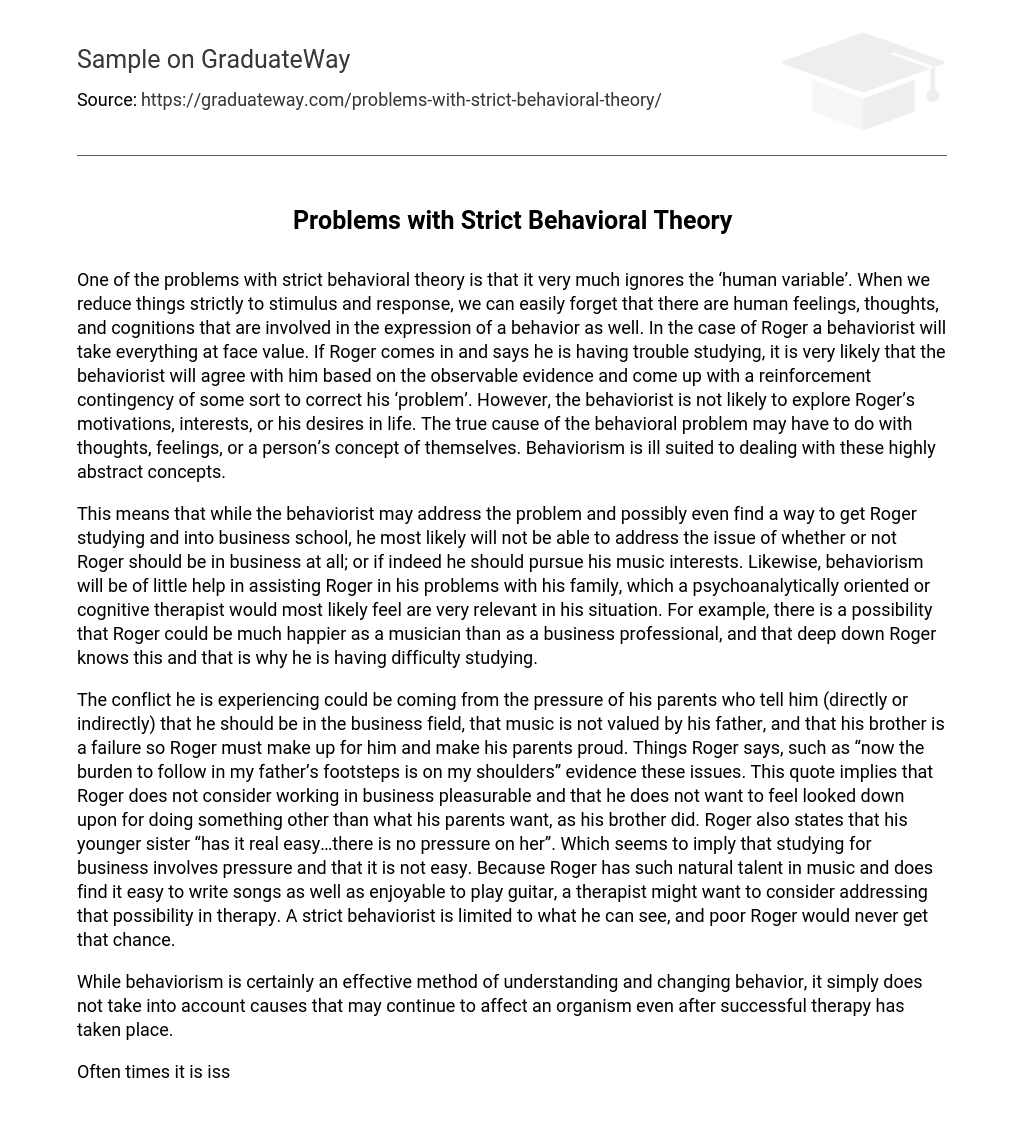One issue with strict behavioral theory is its neglect of the ‘human factor’. When reducing things to just stimulus and response, we may overlook the involvement of human emotions, thoughts, and cognitions in behavior expression. For instance, if Roger expresses difficulty in studying, a behaviorist would take this at face value. They would likely agree based on observable evidence and devise a reinforcement contingency to address his ‘problem’. However, the behaviorist is unlikely to delve into Roger’s motivations, interests, or life aspirations. The root cause of the behavioral issue may lie in thoughts, emotions, or an individual’s self-perception. Behaviorism is ill-equipped to handle such abstract concepts.
The behaviorist’s focus is on resolving the problem and potentially finding a solution for Roger to study and pursue business school. However, the behaviorist is unlikely to address the question of whether Roger should be in business or pursue his music interests. Similarly, the behaviorist won’t be able to assist with Roger’s family problems, which a psychoanalytic or cognitive therapist would consider significant in his situation. It is possible that Roger may be happier as a musician than in a business career, and deep down he may be aware of this, causing his study challenges.
The source of Roger’s conflict may be the pressure he feels from his parents, who communicate (either directly or indirectly) that he should pursue a career in business and that music is not valued by his father. Additionally, they believe that his brother is a failure and expect Roger to compensate for him and make his parents proud. Roger’s statements, such as “now the burden to follow in my father’s footsteps is on my shoulders,” reflect these issues. This quote suggests that Roger finds working in the business field unenjoyable and does not wish to be looked down upon for pursuing something different from his parents’ expectations, similar to his brother. Furthermore, Roger mentions that his younger sister “has it real easy…there is no pressure on her,” indicating that studying business carries pressure and is not effortless. Given Roger’s natural musical talent, his ease in songwriting, and his joy in playing the guitar, a therapist should consider addressing this possibility in therapy. A strict behaviorist would be limited to observable actions and would overlook this crucial aspect of Roger’s well-being.
Although behaviorism is a successful method for comprehending and modifying behavior, it fails to consider the potential ongoing influences that can impact an organism even following successful therapy.
It is common for hidden problems to be the cause of difficulties. While a behaviorist can modify a stimulus to change a behavior, only cognitive therapists or other therapists can equip clients with the tools to handle uncontrollable stimuli. In my opinion, behaviorism relies heavily on external interventions and offers limited self-help strategies to clients.





